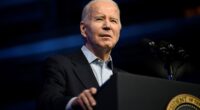A groundbreaking climate agreement was reached during the recent summit, COP28, held in Dubai, marking an unprecedented global call to shift away from fossil fuels. Despite this monumental step, the agreement’s language remains open-ended, potentially allowing certain nations to undertake minimal actions in response.
Following an intense two-week negotiation period marked by heated discussions among countries deeply divided over the future role of oil, gas, and coal, the Global Stocktake was finalized in the morning session, signaling a pivotal moment in the fight against climate change.
While hailed by some nations and experts as a definitive conclusion to the fossil fuel era, the COP28 deal falls short of explicitly urging the world to “phase out” oil, coal, and gas— a more ambitious stance sought by over 100 countries and numerous climate advocacy groups.
Rather than mandating a definitive course of action, the agreement “urges” countries to “contribute” to global carbon reduction efforts in manners they deem appropriate. It presents various options, including “transitioning away from fossil fuels in energy systems” and “accelerating action within this crucial decade to achieve net-zero emissions by 2050.”
During the final session where the agreement was approved, COP28 President Sultan Al Jaber hailed it as a “historic” breakthrough, marking the first instance of specific language addressing fossil fuels within the final accord.
“We have effectively ushered in a paradigm shift that holds the potential to redefine our economies,” Al Jaber proclaimed before assembled national delegates.
While many country representatives lauded the agreement as a significant advancement, US climate envoy John Kerry noted, “Each of us may have variations in the language we would have preferred.” However, he expressed optimism and gratitude, acknowledging the strength of the document crafted during the negotiations.
Kerry highlighted that the agreement’s call to limit global heating to 1.5 degrees Celsius above pre-industrial levels was notably robust and clearer than previous commitments, emphasizing its importance for humanity and ecosystems.
Despite these positive reactions, the Alliance of Small Island States (AOSIS) expressed “exceptional concern,” lamenting the agreement’s incremental nature when an exponential shift was urgently needed.
While acknowledging the acknowledgment of fossil fuels within the agreement, many climate experts pinpointed its weaknesses, particularly its potential allowance for the continued expansion of fossil fuel industries.
“At last, the fervent calls to terminate fossil fuels have materialized within the text of this COP. Yet, significant loopholes threaten to undermine this crucial moment,” remarked Jean Su, the energy justice director at the Center for Biological Diversity.
Others, like Harjeet Singh from the Climate Action Network International, welcomed the resolution’s focus on moving away from coal, oil, and gas but cautioned against loopholes that might provide escape routes for the fossil fuel industry, relying on unproven and unsafe technologies.
Additionally, the agreement advocates for accelerating technologies such as carbon capture and storage, which, while aiming to extract carbon pollution from industrial facilities and the atmosphere, have drawn concern from scientists due to their high costs, lack of scalability, and potential distraction from direct policies aimed at reducing fossil fuel dependency.





